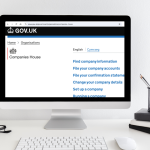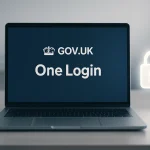How UK Business Owners Can Spot and Avoid Company Formation Scams
If you’ve recently started a business or filed with Companies House, be careful — scammers are watching.
We’re seeing a rise in official-looking letters and emails sent to directors shortly after forming a company. These scams often impersonate government departments and use convincing branding to pressure business owners into paying fake fees.
Here’s how to spot them, what to avoid, and the steps you can take to protect yourself and your business.
The Most Common Scam: A Fake Activation Letter
One of the most widespread scams involves a letter sent after company formation, requesting payment to “activate” your business.
The letter looks official. It may include a QR code, a formal layout, and a made-up government register name. But it’s fake.
Red flags to watch out for:
- References to non-existent registers (e.g. COHOREG)
- Language suggesting you need to pay to complete your registration
- Fake deadlines and pressure tactics
- A layout that mimics Companies House documentation
✅ Remember: Once Companies House confirms your incorporation, no further payment is required to activate your company.
Who Are These Scams Targeting?
Scammers are focusing on:
- New company directors
- Entrepreneurs managing filings themselves
- Businesses with recent Companies House updates
- Directors listed publicly on the register
These groups are particularly vulnerable because scammers know there’s often confusion around early-stage compliance.
Most Common Scam Types in 2025
| Type of Scam | What It Does |
|---|---|
| Letters | Request payment to finalise registration or be listed on fake registers. |
| Emails | Impersonate GOV.UK or Companies House asking for codes or ID. |
| Phone Calls | Pretend to be HMRC or Companies House threatening penalties. |
| QR Codes | Redirect to fraudulent websites that steal financial details (known as “quishing”). |
How to Protect Your Company From Fraud
1. Don’t Pay Third Parties for “Activation”
All legitimate filings and payments are made through your Companies House or HMRC portal. If you’re unsure, check before paying anything.
2. Verify Email Domains
Legitimate government emails will always end in:
- @gov.uk
- @companieshouse.gov.uk
Anything else? Be cautious.
3. Don’t Engage with Cold Calls
If someone phones claiming to be from Companies House or HMRC:
- Never give sensitive information immediately
- Say you’ll call back, then use the official numbers (e.g. Companies House: 0303 1234 500)
4. Use Companies House’s Free Protection Tools
- PROOF stops unauthorised paper filings on your company
- Follow sends alerts when documents are filed under your company’s name
5. Stick to What’s Actually Required
As a director, your obligations include:
- Filing confirmation statements
- Submitting annual accounts
- Reporting company changes (e.g. appointments, share transfers)
You’re not required to pay for things like “activation”, “certificates of good standing”, or “listing on national registers” unless you request them directly through Companies House.
How to Report a Scam
Take action if you receive something suspicious:
- Forward emails to: phishing@companieshouse.gov.uk
- Report phishing attempts to: report@phishing.gov.uk
- Submit a report online: www.actionfraud.police.uk
- If you’ve already paid or shared details, call Action Fraud on 0300 123 2040
Final Takeaway for UK Directors
Starting or running a business already comes with enough challenges — don’t let fraud be one of them.
If you’ve received anything that:
- Demands payment to activate or list your company
- Comes from a suspicious domain or sender
- Tries to rush you into action
…then stop, verify, and report.
You can always check with your accountant, formation agent, or a trusted advisor like RiverView Portfolio before doing anything.
When in doubt: don’t pay, don’t click, and don’t reply.
FAQs (Frequently Asked Questions)
1. Is there ever a fee to activate a company after formation?
No. Once Companies House confirms your incorporation, your company is active. No additional “activation” payment is required.
2. How can I tell if a letter is a scam?
Look for odd language, fake register names, and any request for payment. If it seems unfamiliar, it’s worth a second opinion.
3. Can I get a refund if I paid a scam company?
It depends on your bank and how the payment was made. Contact your bank immediately — some may be able to reverse transactions.
4. Why do scammers know when I’ve formed a company?
Companies House is a public register. Scammers monitor new incorporations to target directors while they’re unfamiliar with the process.
5. What’s the safest way to manage my company filings?
Use your Companies House web account directly, enable PROOF and Follow services, and work with a trusted firm like RiverView Portfolio.




